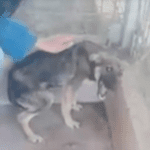12 Week Old Puppy Still Not Potty Trained: Don’t worry; you’re not alone! Housebreaking a puppy can be a challenging process, but with patience, consistency, and the right approach, you can help your furry friend become a well-trained, potty-friendly companion. In this article, we’ll guide you through the steps of successful potty training and provide valuable tips to overcome common challenges along the way.
Understanding the Importance of Potty Training
Potty training is a fundamental aspect of raising a puppy. It teaches them appropriate bathroom behavior and helps maintain cleanliness in your home. By establishing good habits early on, you’re setting the foundation for a well-behaved adult dog. Remember, consistency and positive reinforcement are essential components of effective potty training.
Common Challenges in Potty Training
Establishing a Routine
Creating a consistent routine is crucial for a puppy’s successful potty training. Dogs thrive on predictability, so establish regular feeding times and take them to their designated potty area shortly afterward. Consistency in scheduling will help your puppy understand when and where they should eliminate.
Consistency is Key
To achieve successful potty training, consistency is key. Ensure that all members of the household follow the same training methods and reinforce the same rules. Inconsistencies in the training process can confuse your puppy and prolong the housebreaking period.
Positive Reinforcement
Positive reinforcement is an effective training technique that encourages desired behavior. When your puppy eliminates in the designated area, praise them enthusiastically, offer treats, and provide affectionate gestures. This positive association will motivate your puppy to repeat the behavior.
Addressing Medical Issues
If your puppy continues to struggle with potty training despite your efforts, it’s essential to rule out any underlying medical issues. Conditions like urinary tract infections or gastrointestinal problems can cause frequent accidents. Consult with a veterinarian to ensure your puppy is in good health.
Step-by-Step Guide to Potty Training
Creating a Designated Potty Area
Choose a specific spot in your yard or outside area where you want your puppy to eliminate. Take them to this spot consistently to establish it as their designated potty area. The familiar scent will signal to your puppy that it’s the appropriate place to do their business.
Setting a Regular Feeding Schedule
Maintaining a regular feeding schedule will help regulate your puppy’s bathroom habits. Feed them at the same times each day, and avoid leaving food out for extended periods. This will create a predictable routine and make it easier for you to anticipate when your puppy needs to eliminate.
Observing and Recognizing the Signs
Learn to observe and recognize the signs that indicate your puppy needs to go potty. These signs may include restlessness, circling, sniffing the ground, or suddenly stopping play. When you notice these behaviors, take your puppy to their designated potty area immediately.
Prompt and Frequent Potty Breaks
Puppies have small bladders and limited control over their elimination. To avoid accidents, take your puppy outside for potty breaks every one to two hours, as well as after meals, naps, playtime, and waking up in the morning or from a nap. By being proactive, you can prevent accidents and reinforce good habits.
Rewarding Successful Elimination
When your puppy successfully eliminates in the designated area, reward them with praise, treats, and affection. Positive reinforcement reinforces the desired behavior and encourages your puppy to repeat it. Make sure to offer rewards immediately after they finish eliminating to strengthen the association.
Dealing with Accidents
Accidents are a normal part of the potty training process. When accidents happen, clean them up using an enzymatic cleaner specifically designed to eliminate pet odors. Avoid scolding or punishing your puppy for accidents, as this can create fear or anxiety around the potty training process.
Troubleshooting Tips for Potty Training Challenges
Regression in Training
If your puppy starts having accidents after showing progress, they might be experiencing a training regression. This can happen due to changes in routine, illness, or stressful events. Revisit the basics of potty training, reinforce consistency, and provide extra patience and encouragement.
Fear or Anxiety
Some puppies may develop fear or anxiety around the potty training process, which can hinder their progress. Create a calm and positive environment during potty breaks, use soothing tones, and offer treats and praise to help alleviate any anxiety your puppy may feel.
Submissive Urination
Submissive urination occurs when a puppy urinates as a response to fear, anxiety, or perceived dominance. It’s essential to avoid any punishment or scolding in these situations, as it can worsen the issue. Focus on building your puppy’s confidence through positive reinforcement and gradually desensitizing them to triggering situations.
Marking Behavior
Male puppies may exhibit marking behavior as they reach sexual maturity. Neutering your puppy can help reduce marking tendencies. Additionally, supervision, consistent training, and managing the environment can discourage marking behavior and reinforce appropriate elimination.
Nighttime Training
Nighttime training can be more challenging since puppies have limited bladder control while they sleep. To minimize accidents, limit water intake a few hours before bedtime, take your puppy out for a potty break right before sleeping, and consider using a crate or a designated sleeping area to restrict their movement during the night.
Patience and Persistence: The Key to Success
Potty training takes time and effort, and it’s important to remain patient and persistent throughout the process. Each puppy learns at their own pace, so avoid comparing your puppy’s progress to others. With consistency, positive reinforcement, and a supportive environment, your 12-week-old puppy will eventually become fully potty trained.
Conclusion
We have given information on “12 Week Old Puppy Still Not Potty Trained in this post. Potty training a 12-week-old puppy requires patience, consistency, and positive reinforcement. By following a step-by-step approach, establishing a routine, and addressing common challenges, you can help your puppy develop good bathroom habits. Remember to be understanding and patient, as accidents are a normal part of the learning process. With time and effort, your puppy will become a well-trained and potty-friendly companion.








d2nxar